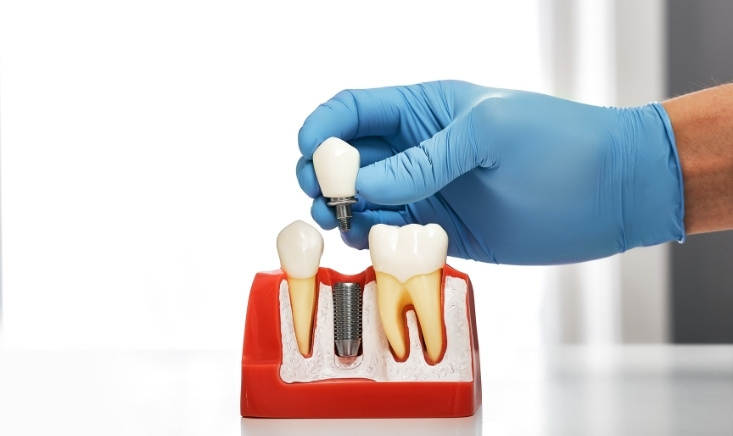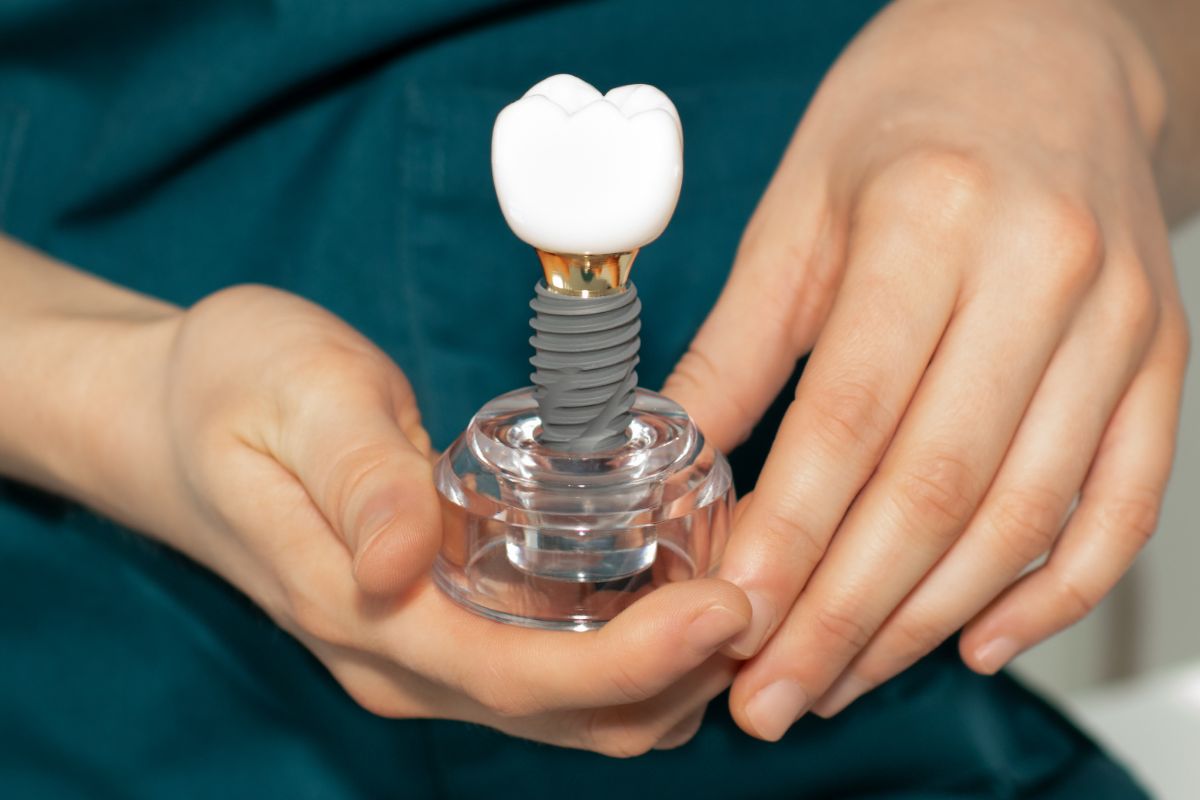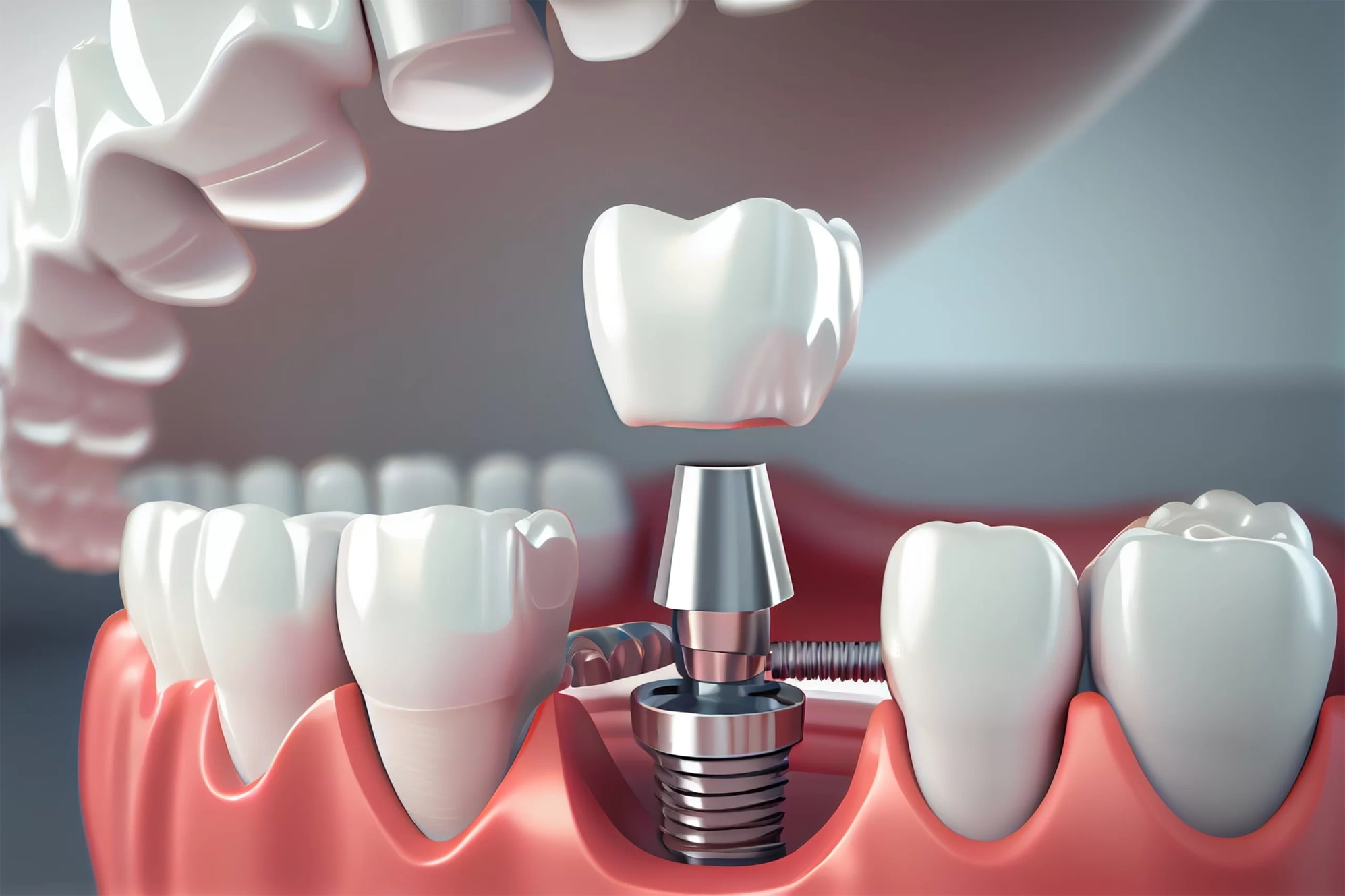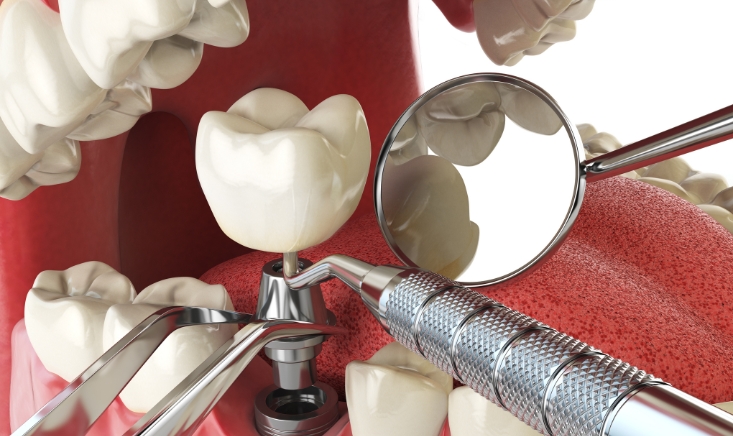We are not a registered Medicare/Medicaid Provider
What Happens If You Wait Too Long for Dental Implants? The Hidden Risks?

Dental implants widely serve as the gold standard for replacing missing teeth, providing a permanent solution that restores function and aesthetics. However, many people put off getting dental implants, either due to fear, cost, or simply the belief that they have plenty of time.
While dental implants are a durable and effective solution, delaying the procedure can lead to hidden risks and complications that can make the process more complex, costly, and less effective in the long run. So, what exactly happens if you wait too long for implants? Let’s dive into the hidden risks of postponing this transformative dental procedure.
Bone Loss: The Silent Consequence
One of the most significant risks of waiting too long for dental implants is bone loss. When you lose a tooth, the bone underneath it loses function. This is because the tooth root, which typically stimulates the bone when you chew, is no longer present.
Waiting too long for an implant leads to needing more healthy bone to support the titanium post that forms the foundation of the implant. In such cases, you may require additional procedures like a bone graft to rebuild the bone, which adds time and cost to the treatment process.
Shifting Teeth: The Domino Effect
Teeth are designed to work together, and each one plays a vital role in the alignment of your bite. When you lose a tooth and leave the gap unfilled for too long, the surrounding teeth can shift into the space. This movement can cause bite problems, misalignment, and increased wear on your other teeth.
Shifting teeth can also lead to additional dental issues, such as temporomandibular joint (TMJ) pain, headaches, and difficulty chewing. This complicates getting implants, as your remaining teeth might need to be repositioned before an implant can be placed.
Compromised Aesthetic Results
Another hidden risk of waiting too long for dental implants is the potential for compromised aesthetic outcomes. As the bone shrinks and the surrounding teeth shift, the gap left by the missing tooth may become less ideal for implant placement. The longer you wait, the more difficult it may be for your dentist to create a smile that looks as natural and beautiful as possible with prompt treatment.
In some cases, patients who delay getting implants may require additional procedures such as gum contouring or even dental bone augmentation to restore their smile to its optimal appearance. These extra treatments can add to the overall time and expense of the implant process. Hence, nothing can be better than consulting from a dentist for dental implants in Denville
Increased Risk of Infection and Gum Disease
The longer a missing tooth remains untreated, the higher the risk of gum disease and infection in the surrounding tissues. The empty socket left behind after tooth extraction can become a breeding ground for bacteria.
Gum infection can weaken the gum tissue, making it less conducive to supporting a dental implant. In some cases, infection can even spread to the bone, rendering implant placement impossible. Thus, it is crucial to address missing teeth promptly to maintain the health of your gums and jawbone.
Increased Treatment Time and Costs
There can be a lot of complications in case you delay dental implants, it will also make your treatment lengthy and expensive. As mentioned, bone grafting and other preparatory procedures may become necessary if the bone has deteriorated too much. This additional work can add significant time to your treatment and increase the overall cost.
Moreover, if you choose temporary solutions such as dentures or bridges while waiting for dental implants, these may need to be replaced more frequently due to wear and tear, further increasing long-term costs. While implants seem a significant investment initially, waiting to get them can lead to unforeseen expenses.
Functional Problems: Difficulty Chewing and Speaking
Missing teeth can also affect your ability to chew, speak clearly, and confidently smile. As the gap in your teeth persists, you may find it more difficult to eat certain foods, leading to nutritional deficiencies or weight loss. You may also experience changes in speech, such as slurred or muffled words, which can hurt your social and professional life.
Dental implants are designed to restore the natural function of your teeth, allowing you to eat and speak comfortably once again. However, if you wait too long, the gap may worsen, making it harder to restore full function even after the implant is placed.
Psychological Impact: The Toll on Your Confidence
Living with missing teeth can affect your confidence and mental well-being. Many people with gaps in their smiles avoid social situations or feel self-conscious when speaking or eating in public. This can lead to feelings of embarrassment, isolation, and even depression.
The sooner you address the issue with dental implants, the quicker you can restore your smile and improve your quality of life. Delaying the procedure only prolongs the emotional and psychological effects of tooth loss.
Don’t Wait Too Long for Dental Implants
Implants are a permanent, effective solution for replacing missing teeth, but procrastination can have serious consequences. Waiting too long for implants leads to bone loss, shifts teeth, increases the risk of infection, and compromises aesthetics. The longer you wait, the more complicated and expensive the process may become.
If you have missing teeth, it’s crucial to consult with a dental professional sooner rather than later. Prompt action not only helps you avoid these hidden risks but also ensures that you can enjoy the long-term benefits of dental implants—restoring both the function and beauty of your smile for years to come.


